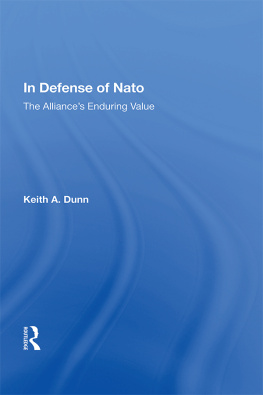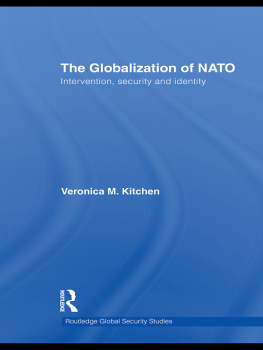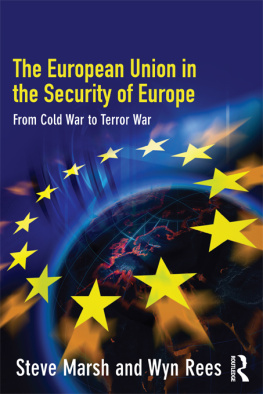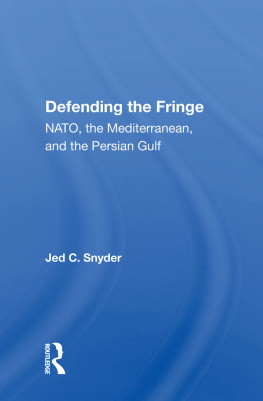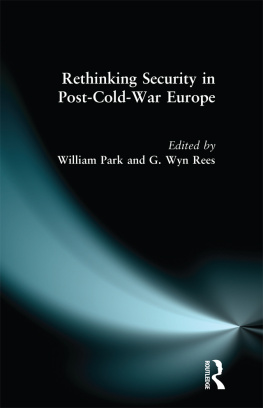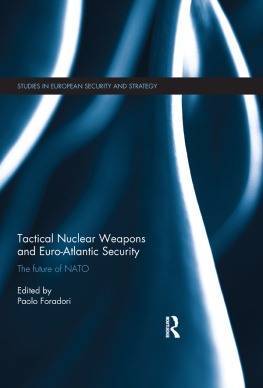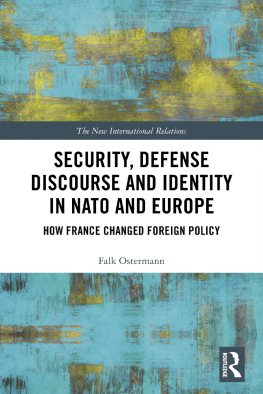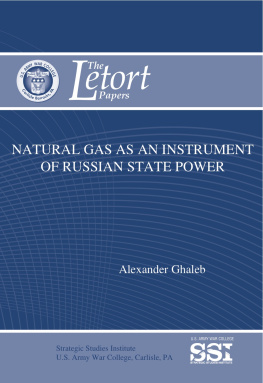In Memory of
William O. Staudenmaier
19311988
First published 1990 by Westview Press
Published 2018 by Routledge
52 Vanderbilt Avenue, New York, NY 10017
2 Park Square, Milton Park, Abingdon, Oxon OX14 4RN
Routledge is an imprint of the Taylor & Francis Group, an informa business
Copyright 1990 by Taylor & Francis
All rights reserved. No part of this book may be reprinted or reproduced or utilised in any form or by any electronic, mechanical, or other means, now known or hereafter invented, including photocopying and recording, or in any information storage or retrieval system, without permission in writing from the publishers.
Notice:
Product or corporate names may be trademarks or registered trademarks, and are used only for identification and explanation without intent to infringe.
Library of Congress Cataloging-in-Publication Data
Dunn, Keith A.
In defense of NATO : the Alliances enduring value / Keith A.
Dunn.
P. cm.
Includes bibliographical references.
ISBN 0-8133-0975-1
1. North Atlantic Treaty Organization. 2. EuropeDefenses.
3. United StatesMilitary relationsEurope. 4. Europe-Military
relationsUnited States. I. Title.
UA646.3.D84 1990
355.031091821dc20
89-27613
CIP
ISBN 13: 978-0-367-00341-8 (hbk)
I have never been impressed with acknowledgments that saved the most important people for last. Therefore, I express my appreciation first to those who had to make the greatest sacrifices and without whose understanding this book would not have been possible: my family-Terry, Chrisie, and Drew. Each of them had to give up something so I could have not only the time but also the peace and quiet necessary to write. I am grateful for their understanding that baseball, assistance with homework, and family chores sometimes had to take a backseat to Dads time on the computer.
Also, I thank my colleagues in the Institute for National Strategic Studies and the Strategic Concepts Development Center. Several of them, particularly Stephen Flanagan, Karl Lowe, Bill Hogan, Andrew Hamilton, and Jeff Simon, read more drafts of chapters than I care to remember and they care to think about. Stephen Flanagan suffered probably the most because his office adjoined mine. I am sure that the words what do you think of this? send cold chills down his spine because as soon as I would utter those fateful words I would rush into his office, interrupt whatever he was doing, and try my latest idea or chapter transition on him. The only way that he could escape me was to take a new job with the Policy Planning Staff at the Department of State. Andrew Hamilton also deserves a special note of thanks. He tried, most unsuccessfully I must add, to teach me how to perform mathematical formulas on his fancy Hewlett-Packard calculator. Thank goodness he was willing to check my old-fashioned pencil-and-paper techniques and then recalculate them when that proved necessary.
This book is dedicated to William 0. Staudenmaier, a good friend, an excellent strategist, and the rarest of all commodities-a first-rate uniformed scholar. His premature death was a loss to all who knew him. I think that he would have liked the approach used in this book, if not its ultimate conclusion. I hope that is the case.
Nothing in this volume should be construed to represent the official position of the National Defense University, the Department of the Army, or the Department of Defense, unless so designated by other official documentation. I alone am responsible for any errors of fact or judgment.
Keith A. Dunn
Washington, D.C.
This book is about the strategic importance of NATO-Europe and why, for the foreseeable future, Western Europe should continue to remain the primary geographic area of importance in U.S. national security pianning. In many ways, it is a shame that a book like this has to be written, given the enduring importance of Western Europe in U.S. global planning in the twentieth century. Nevertheless, NATO bashing-it seems-has become a popular American pastime. Over the last several years, several influential Americans-Zbigniew Brzezinski, Henry Kissinger, Congresswoman Patricia Schroeder, former Senator Gary Hart, and Andrew Goodpaster, to name just a few-have advocated or implied that the United States unilaterally should withdraw large portions of its forces from Europe. Additionally, there seems to have been a ground swell of support within the academic community favoring an alteration in the U.S. relationship with Western Europe.
While there has been a lot of publicity given to such proposals, insufficient attention to the strategic merits or wisdom of such suggestions has occurred. Consequently, there are significant issues concerning the importance of NATO to U.S. strategy, Europes current contribution to its own defense, and the long range consequences of a potential major withdrawal of U.S. forces from Europe that have not been adequately addressed. Before policymakers and congressional leaders can evaluate the merits of the choices before them, a comprehensive review of the national security implications associated with changing the American security relationship with Europe is necessary.
Any hope that a debate about the importance of Europe to the United States will be transitory is unlikely. If anything, this debate will probably intensify over the next several years for at least two reasons. First, much like the continental-maritime strategy debate that filled the pages of newspapers and academic journals during the early years of the Reagan Administration, the issue of whether we should or should not retain a substantial number of U.S. forces in Europe for the foreseeable future is a fundamental debate about the strategic challenges facing the United States: namely, how does the United States secure its vital objectives in Europe, the Far East, and the Persian Gulf-while dealing with more likely conflicts in the Third World-without needlessly increasing the risk of war in areas where deterrence failure could mean nuclear war? And, equally important, how can the United States afford such a strategy, when its defense budget growth is unlikely to do better than keep even with inflation over the next several years.
Second, the whole issue of alliance burdensharing has become a significant American political issue. In an era of tighter defense budgets, the issue of forward deployment of U.S. forces-with NATO-Europe begin the lightning rod, since more than 350,000 U.S. forces are deployed in this region-has become a politically debatable topic. One would hope that debates concerning national security interests and objectives would be above partisan domestic politics. But, in a democracy such as exists within the United States, only the politically naive would believe such an argument. National security and defense issues affect domestic political decisions and vice versa. Therefore, it is difficult, if not impossible, to divorce a fundamental debate about national security interests and objectives from partisan politics in a democracy. The best that one can hope for is that the right questions are asked and that the advocates of change are forced to demonstrate that their alternatives clearly would result in a more secure international environment. This book argues that making fundamental changes in the U.S. security commitment to Europe would not be in the United States long term interests. But, what about the basic questions that need to be asked?

